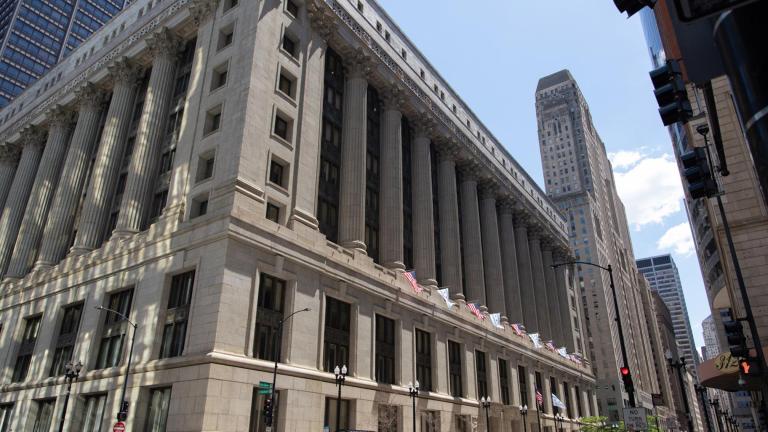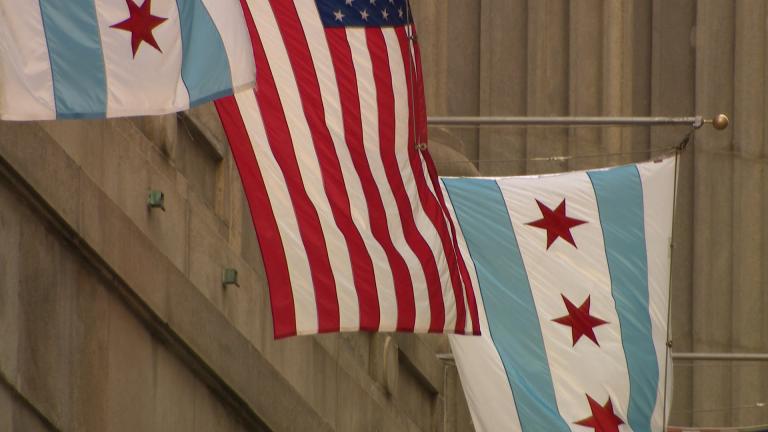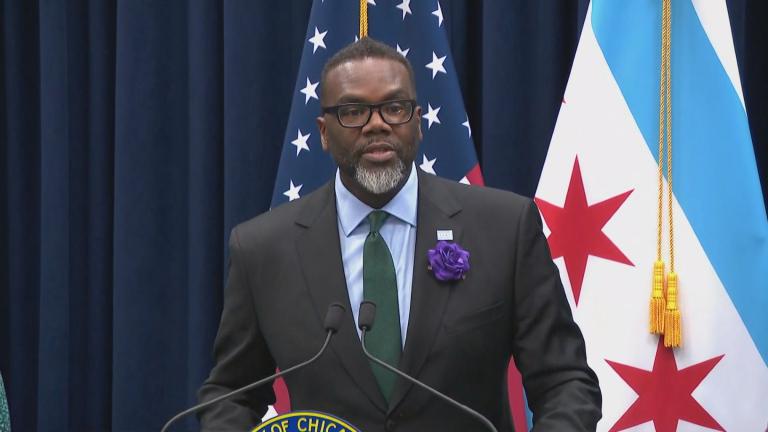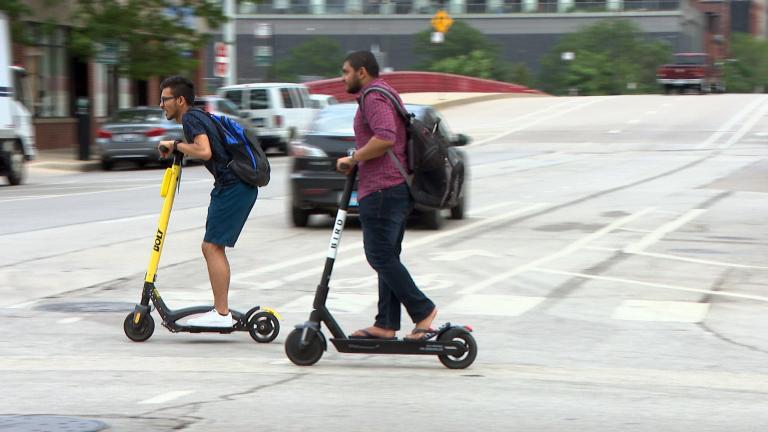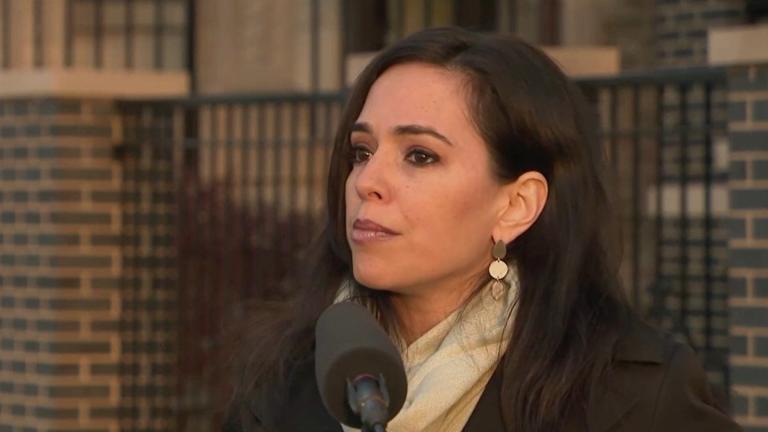The Chicago City Council is poised to vote Tuesday on a proposed eight-year deal with the city’s police union that would give the city’s more than 11,000 officers annual average raises of approximately 2.5% — while imposing new rules on officers suspected of misconduct.
In an interview with “Chicago Tonight,” on Monday, Ald. Scott Waguespack (32nd Ward) said the proposal “goes pretty far” in the effort to give the city more tools to hold police officers responsible for misconduct by ending the 40-year ban on anonymous complaints.
“I think it is a pretty good compromise,” Waguespack said. “A lot of people would like to see more. But I think that most aldermen might agree … that it should move forward.”
However, the American Civil Liberties Union of Illinois, Business and Professional People for the Public Interest, the Chicago Council of Lawyers/Chicago Appleseed and the Chicago Lawyers’ Committee for Civil Rights said the proposed deal does not do enough to ensure that officers protect the civil rights of Chicagoans.
“Without more, these contract provisions will continue to hurt those who are the victims of police misconduct, primarily Black and Latinx Chicagoans,” said Aneel Chablani, chief counsel at the Chicago Lawyers’ Committee for Civil Rights.
The tentative agreement would prohibit the names of complainants from being disclosed to officers until immediately prior to their interview, which typically comes at the end of an investigation.
The Department of Justice criticized the ban on investigating anonymous complaints in a 2017 investigation of the CPD, saying it meant many allegations were never made for fear of retaliation.
A new state law bans police unions’ collective bargaining agreements to require complainants to sign an affidavit when filing a complaint against a police officer.
In addition, the proposed deal would no longer allow officers who use force against a member of the public to revise their statement to investigators after reviewing audio and video recordings of the incident.
Critics of the Chicago Police Department contend both of those provisions have been used by officers to uphold a code of silence that prevents officers guilty of misconduct from being disciplined.
“We recognize that the city has made some progress on these issues and that negotiations with the present leadership of the FOP are difficult,” said David Melton, co-chair of the Civil Liberties Committee at the Chicago Council of Lawyers/Chicago Appleseed. “Nevertheless, these negotiations are an important opportunity to try and improve this contract, for the benefit of both the residents of Chicago and the police officers who are sworn to serve and protect them. They require a maximum effort to make progress, both from the city and from any of the more enlightened members of the FOP.”
Retroactive to 2017 and ending in 2025, the proposed deal would mean an officer’s salary will rise by approximately 20% during the life of the agreement.
Chicago police officers — who are prohibited from striking — have been working under the terms of a contract originally inked in 2012 which expired more than four years ago.
Approximately 79% of the members of the Fraternal Order of Police Lodge 7 voted last month to accept the deal, putting the long-in-the-works collective bargaining agreement one vote away from final passage.
In other action, the City Council will weigh a measure to allow cannabis to be sold legally downtown cleared a key city panel on Wednesday, even though it will keep a ban in place on Michigan Avenue and State Street.
Ald. Brendan Reilly, whose 42nd Ward includes most of downtown Chicago, said the measure was “a compromise.”
“It is not my preference,” Reilly said. “You need to give up a little to get things done sometimes, and that’s the case here.”
Allowing dispensaries to open up downtown and in more of the city will help those who won licenses in a lottery designed by state officials to help Black and Latino Illinois residents — as well as those who’d been punished, and even sent to prison, when using and selling marijuana was a criminal activity — get a piece of the lucrative legal pot business, Reilly said.
“It is an industry we need to embrace,” said Reilly, who said the city desperately needs additional revenue. “The stigma that goes with cannabis is being lifted.”
However, Ald. Anthony Beale (9th Ward), who was one of four aldermen to vote against the proposal from Lightfoot, said the new rules would not ensure that Black and Latino Chicagoans hurt by the war on drugs would benefit from the legalization of marijuana.
Many companies that won those licenses are “fronts” for corporate marijuana companies.
“Here we are trying to put another Band-Aid on a gunshot wound,” Beale said.
Contact Heather Cherone: @HeatherCherone | (773) 569-1863 | [email protected]

